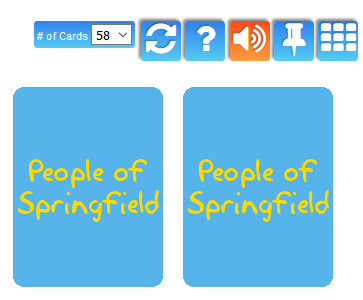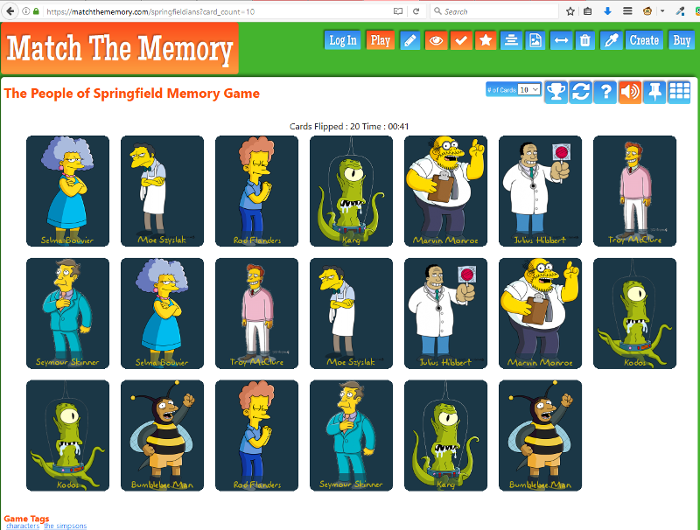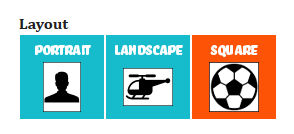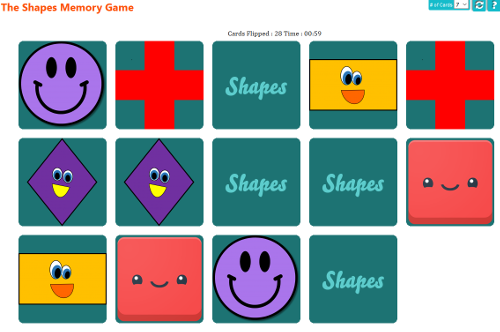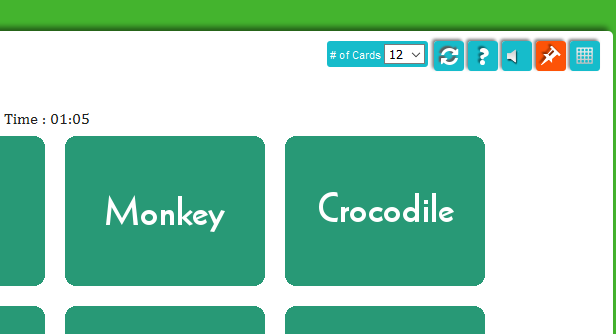A few months ago, we posted about the new fonts we’d added to the site, and hinted that we had “plans to translate the site and editor itself into many languages.” We’re happy to announce that phase 1 of those plans has now launched on the site.
Under the hood, every time your web browser asks a web site to load a specific page, it also tells that web site which languages it supports. “I read Korean,” it may say, “can you show me this page in that language?”; or, “Please give me a version of the web site that’s tailored to Spanish as spoken in Argentina, or any Spanish whatsoever.” Up until a few weeks ago, that specific part of the request (called the Accepts-Language header) was ignored by Match The Memory. “Koh-ree-uhn? Sorry, never heard of it — you get English.” “Here ya go, a nice English web page for you!”
We have now published a little tweak that allows the site to correctly respond to those requests for the 5 most-requested languages on Match The Memory:
- English
- Spanish
- Portuguese
- Dutch
- Korean
Everything from the home page, to the game play page, to the editor where you can create and refine your own personalized matching games has been professionally translated into these languages. The addition of the four new languages gets us to almost 90% support for requests to our site, so it should open up opportunities for game creators and players across the world.
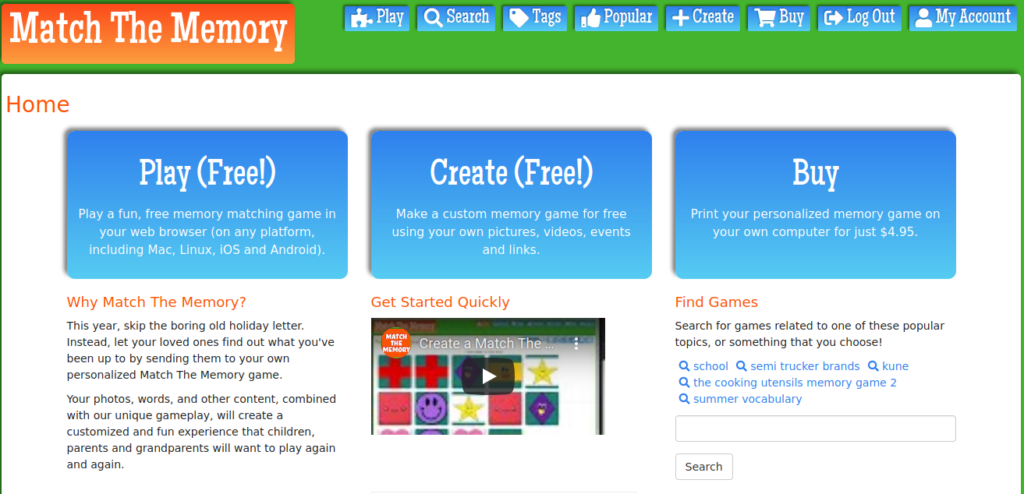
English 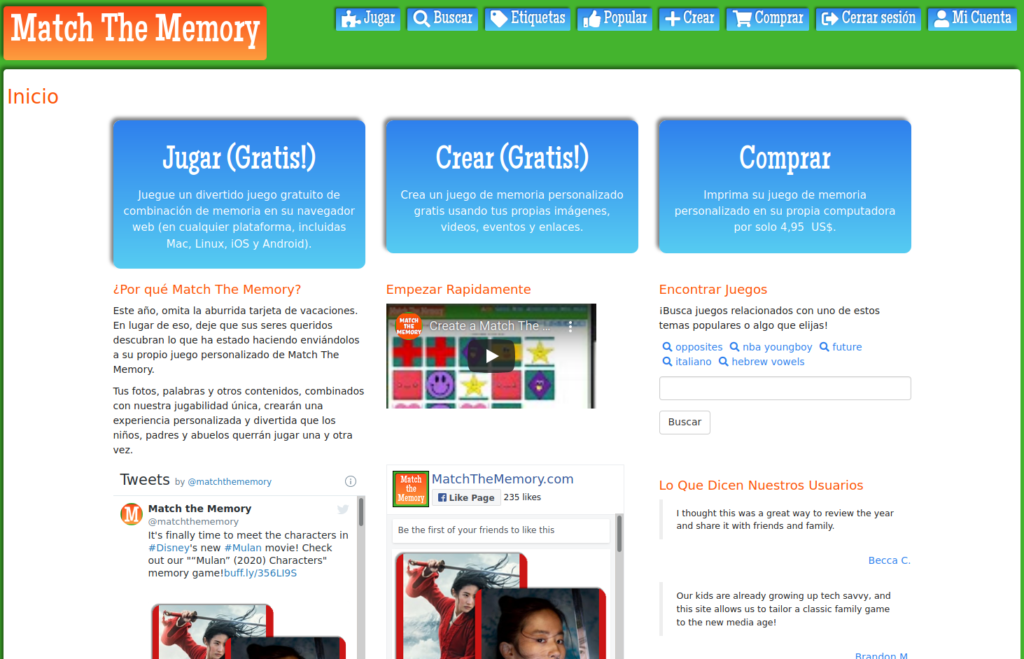
Spanish 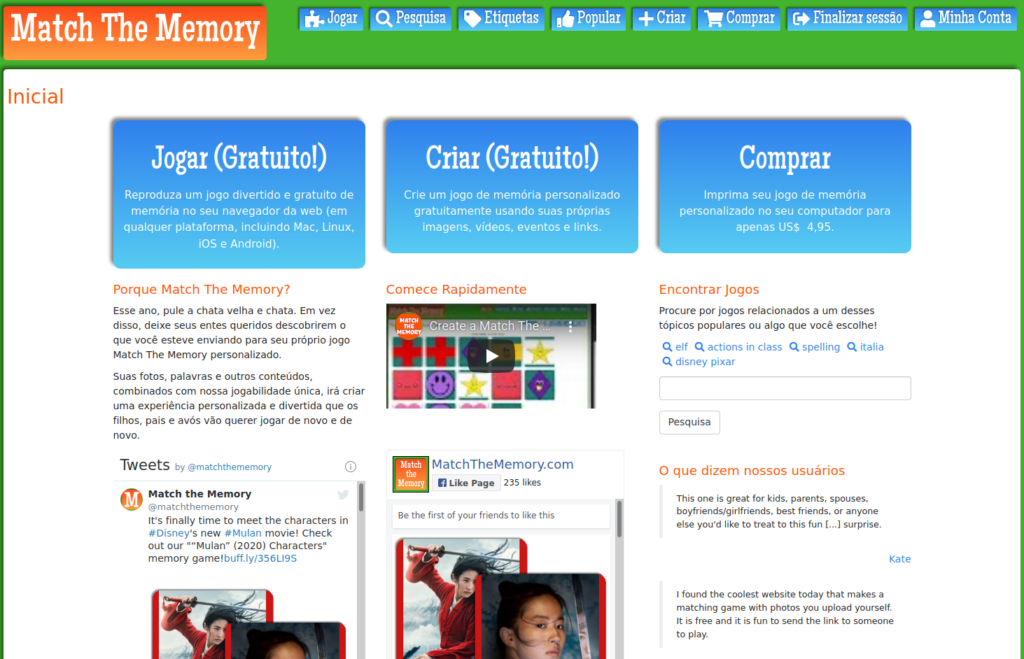
Portuguese 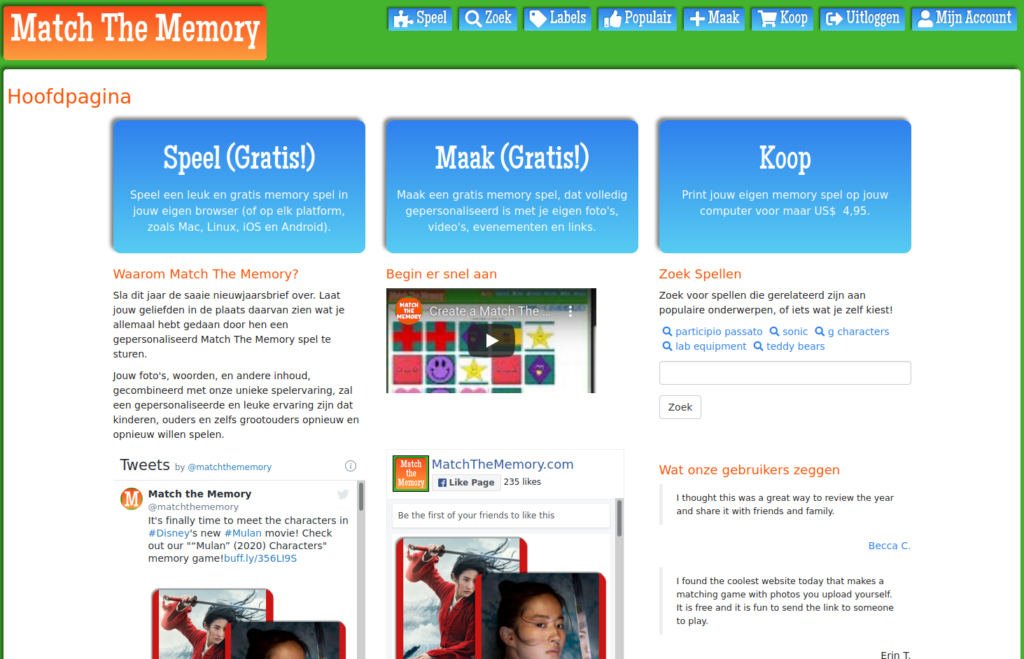
Dutch 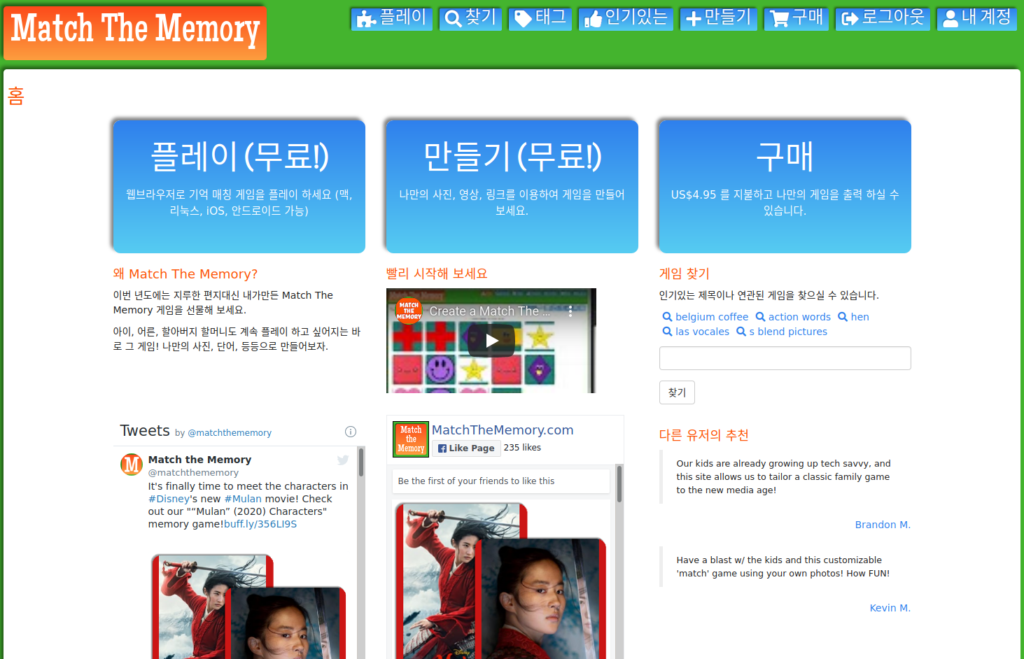
Korean
What’s next?
We’re planning to roll out translations for the following languages in the next few months:
- Croatian
- Polish
- Italian
- Hebrew
- Russian
- Chinese
(Update 2021-11-13: These languages have been added to the site!)
These represent the six next most-frequently requested languages on Match The Memory, and once they’re in place, more than 95% of our visitors will get the site sent to them in the language that they actually asked for.
After that, we’re going to branch out beyond the current user base of Match The Memory, and add support based on the most popular languages spoken worldwide. (Sorry, we don’t have plans to support fictional languages like Klingon.) That will involve creating translations for:
- Hindi
- Arabic
- Malay
- Bengali
- French
If you’d like to speed up this translation effort so that we get to your chosen language more quickly, get in touch with us via our contact form. Let us know which language you’d be able to help with, and we’ll work together to drop its support into the site.
Alternately, if you’d like your preferred language to jump the line, as it were, you can donate the cost of the professional translation (approximately USD $30 per language) and let us know which one you’re interested in.

